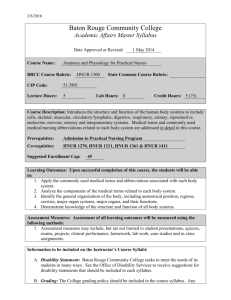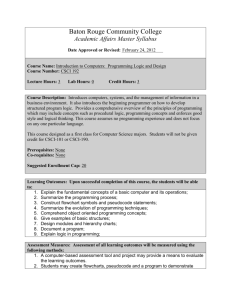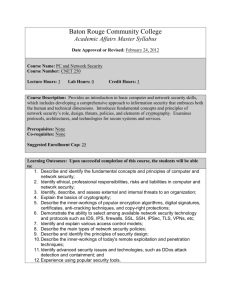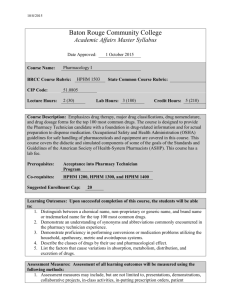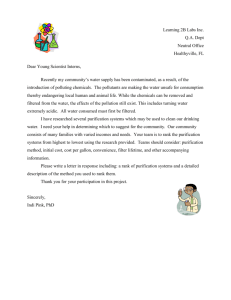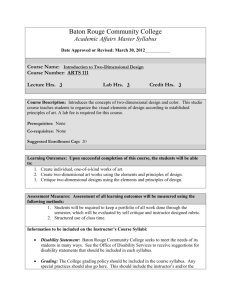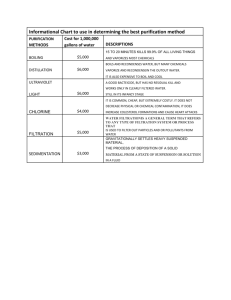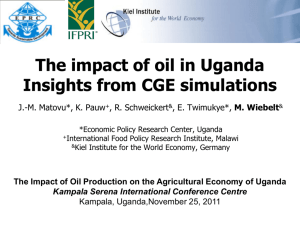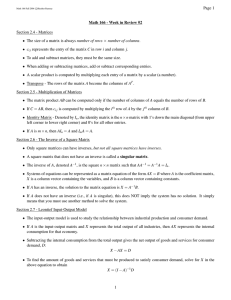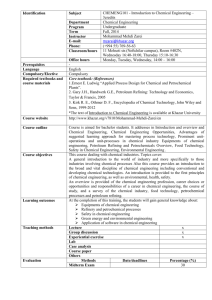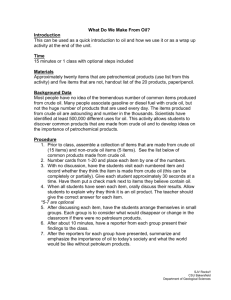PTEC 230 - Baton Rouge Community College
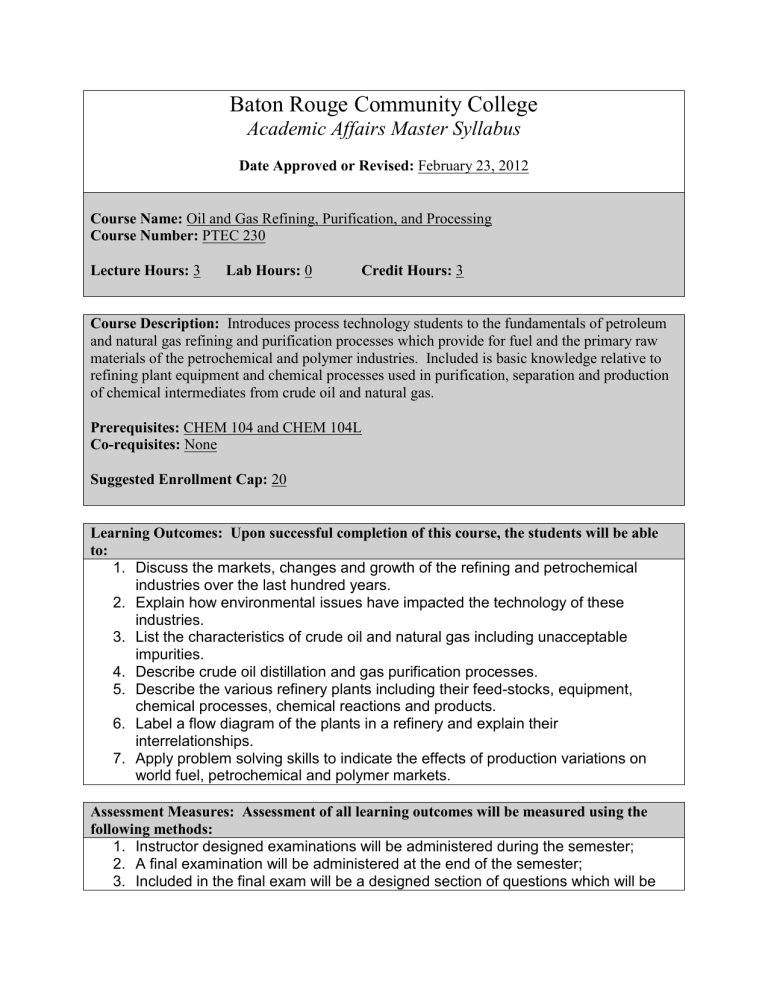
Baton Rouge Community College
Academic Affairs Master Syllabus
Date Approved or Revised: February 23, 2012
Course Name: Oil and Gas Refining, Purification, and Processing
Course Number: PTEC 230
Credit Hours: 3 Lecture Hours: 3 Lab Hours: 0
Course Description: Introduces process technology students to the fundamentals of petroleum and natural gas refining and purification processes which provide for fuel and the primary raw materials of the petrochemical and polymer industries. Included is basic knowledge relative to refining plant equipment and chemical processes used in purification, separation and production of chemical intermediates from crude oil and natural gas.
Prerequisites: CHEM 104 and CHEM 104L
Co-requisites: None
Suggested Enrollment Cap: 20
Learning Outcomes: Upon successful completion of this course, the students will be able to:
1. Discuss the markets, changes and growth of the refining and petrochemical industries over the last hundred years.
2. Explain how environmental issues have impacted the technology of these industries.
3. List the characteristics of crude oil and natural gas including unacceptable impurities.
4. Describe crude oil distillation and gas purification processes.
5. Describe the various refinery plants including their feed-stocks, equipment, chemical processes, chemical reactions and products.
6. Label a flow diagram of the plants in a refinery and explain their interrelationships.
7. Apply problem solving skills to indicate the effects of production variations on world fuel, petrochemical and polymer markets.
Assessment Measures: Assessment of all learning outcomes will be measured using the following methods:
1. Instructor designed examinations will be administered during the semester;
2. A final examination will be administered at the end of the semester;
3. Included in the final exam will be a designed section of questions which will be
used for outcome assessment purposes.
Information to be included on the Instructor’s Course Syllabi:
Disability Statement: Baton Rouge Community College seeks to meet the needs of its students in many ways. See the Office of Disability Services to receive suggestions for disability statements that should be included in each syllabus.
Grading: The College grading policy should be included in the course syllabus. Any special practices should also go here. This should include the instructor’s and/or the department’s policy for make-up work. For example in a speech course, “Speeches not given on due date will receive no grade higher than a sixty” or “Make-up work will not be accepted after the last day of class.”
Attendance Policy: Include the overall attendance policy of the college. Instructors may want to add additional information in individual syllabi to meet the needs of their courses.
General Policies:
Instructors’ policy on the use of things such as beepers and cell phones and/or hand held programmable calculators should be covered in this section.
Cheating and Plagiarism: This must be included in all syllabi and should include the penalties for incidents in a given class. Students should have a clear idea of what constitutes cheating in a given course.
Safety Concerns: In some programs this may be a major issue. For example, “No student will be allowed in the safety lab without safety glasses.” General statements such as, “Items that may be harmful to one’s self or others should not be brought to class.”
Library/ Learning Resources: Since the development of the total person is part of our mission, assignments in the library and/or the Learning Resources Center should be included to assist students in enhancing skills and in using resources. Students should be encouraged to use the library for reading enjoyment as part of lifelong learning.
Expanded Course Outline:
I.
Markets plus their changes and their growth
II.
Environmental impact over time
III.
Overview of Crude Oil and Natural Gas from varying sources
IV.
Distillation Unit
V.
Vacuum Unit
VI.
Naphtha Catalytic Reformer
VII.
Isomerization Unit
VIII.
Fluid Catalytic Cracker
IX.
Olefins Unit
X.
LPG and Gas Treatment
XI.
Thermal Cracker
XII.
Alkylation Unit
XIII.
Hydro-desulfurization ( Naphtha, Gasoline, Diesel )
XIV.
Gasoline Blending System
XV.
Coker Unit
XVI.
Sulfur Plant
XVII.
Tail Gas Treater Unit
XVIII.
Chemical and Polymer Industry Users of various plant products
